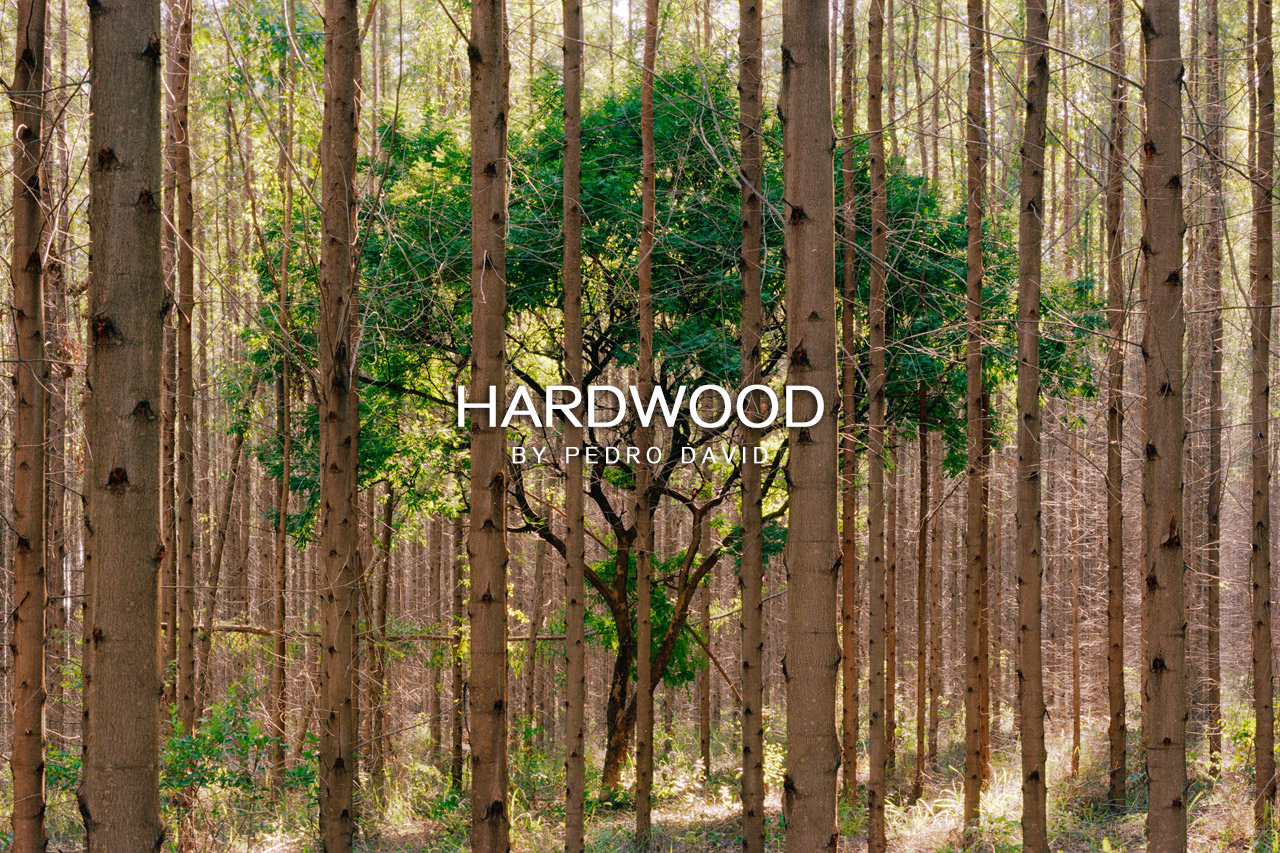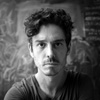Hardwood
- Pedro David

Brazillian country side is being filled with eucalyptus.
The accelerated industrial development and the overtuned importance of steel exportation, lead by sucessive governments, are one of the reasons of the deforestation of the Cerrado, the Brazillian savana, the Atlantic Forest, and even the Amazon.
Several international steel companies, established by the country, buys large portions of land and substitutes the natural vegetation by transgenic eucalyptus trees, a fast growing kind of wood, used to make vegetal coal, an important ingredient in the tranformation of the iron ore to steel.
The eucalyptus charges high the environment for it’s fast growing speed: it consumes too much water and nutrients, leaving the soil exhausted and dry.
I’m working in some regions affected by these monocrops since my beginning as a photographer. The extensive and visually growing areas of the eucaliptus fields always concerned me, because of the environmental and also social impact it brings, changing the landscape as a whole, the geographical references, the natural resources, the economical activities, and the amount of water, now a global issue. I’ve ridden, and walked, a lot inside these fields since 2002.
I’ve photographed several situations trying to discuss this question in the last 13 years. But when, in a recent travel, I passed by road swallowed by an enormous eucaliptus field, I faced one of this hybrid scenes and saw the opportunity to make a representative image of the situation, a straight photograph containing: the past, a native tree, something that is desappearing of those landscapes, the future: those supra-vegetal, eucaliptus clones, in the present of the photography.
Besides this documentary facet, that is being effective to sensibilize people of the problem of the extensive growing of this and other kinds of monocrops, a basic Brazillian problem, I also see this work in a simbolic way. I note that people feel something beyond the direct meaning of these photographs, something like a direct identification with these encaged lifes, struggling to survive in an artificial, oppressive and vanishing world.


















 Pedro David (Brazil, 1977). He graduated in journalism in 2002. His works are in public and private photographic collections. He has received the Situações Brasília Contemporary Art Prize in 2012 and 2014; Conrado Wessel Foundation Prize of Photography, in 2013, Itamaraty Prize for Contemporary Art in 2012 and 2013; Arte Pará Prize in 2012; Pierre Verger Prize of Photography, in 2011; Latin Union - Martín Chambi Protography Prize, in 2010, and the 5thPorto Seguro Brasil Award. He has published the books: Fase Catarse (Catharsis Phase), 2014; Rota Raiz (Route Root) Tempo D’Imagem, 2013; O Jardim (The Garden) Funceb, 2012 and Paisagem Submersa (Underwater Landscape) Cosac Naify, 2008.
Pedro David (Brazil, 1977). He graduated in journalism in 2002. His works are in public and private photographic collections. He has received the Situações Brasília Contemporary Art Prize in 2012 and 2014; Conrado Wessel Foundation Prize of Photography, in 2013, Itamaraty Prize for Contemporary Art in 2012 and 2013; Arte Pará Prize in 2012; Pierre Verger Prize of Photography, in 2011; Latin Union - Martín Chambi Protography Prize, in 2010, and the 5thPorto Seguro Brasil Award. He has published the books: Fase Catarse (Catharsis Phase), 2014; Rota Raiz (Route Root) Tempo D’Imagem, 2013; O Jardim (The Garden) Funceb, 2012 and Paisagem Submersa (Underwater Landscape) Cosac Naify, 2008.
